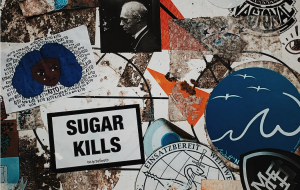Call for Contributions

We invite contributions to a virtual workshop on creative research methods, with a focus on health and design, to be held on the afternoon of Friday 17th July. Contributors are encouraged to share, reflect upon and ‘test’ the use of creative methods, rather than present findings. We welcome contributions in a range of formats. Involvement in this workshop can take one of the following forms (a-d will be due at the end of June and pre-circulated. Please contact the organisers if you have other ideas, as we can be flexible):
- (a) Work-in-progress. A draft article or section of publication for feedback via the ‘dead author’ method (see below).
- (b) Discussion paper. Up to 1000 words or a ten-minute video on a topic of your choice, including questions or discussion points for other participants. This could be a section of an article-in-development, a draft plan for a methodology, or other.
- (c) Creative research activity. A ten-minute video or written/visual instructions detailing a creative research activity (up to 1000 words). This can be used to test methods in progress or to demonstrate methods already in use, so long as it is an activity that people can do at home with ‘on hand’ materials.
- (d) ‘Roundtable’ contribution. A five-minute video, 500-word response or poster on the question: Why engage with creative methods? AND/OR What must we consider when engaging with creative methods?
- (e) Respondent. This role could involve attending the workshop without presenting or pre-circulating materials, or could offer five-minute filmed responses to (b) or (c) as starting points for discussion.
The exact duration and shape of the workshop will be determined by the contributions we receive, but we anticipate a 2-3 hour workshop with a combination of:
- a ‘dead author’ session, in which written papers circulated in (a) are discussed in the author’s presence while the author remains silent
- thematically-organised discussion groups with the presenters/authors of papers circulated in (b) and the methods trialled in (c)
- a live roundtable picking up on the issues raised in (d)
We hope to close the workshop with a creative task.
Hosted by the UKRI Future Leaders Fellowship ‘Sensing Spaces of Healthcare: Rethinking the NHS Hospital’
Please email us at sensing-spaces-project@bristol.ac.uk with your name, a brief expression of interest, and an outline of how you would contribute to the virtual workshop by end of May 2020. This does not need to be more than a couple of sentences. We will be in touch soon afterwards and will ask for materials by Friday 26th June, in order to collate, circulate and give people time to engage with them before the workshop. The quick turnaround reflects the idea of this workshop which will be discussion-focused and is not intended to focus on ‘finished’ works – we encourage you to share existing materials / drafts or to use the videos to try out ideas still in development.
